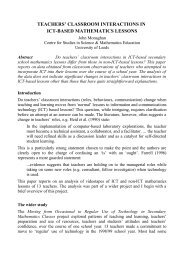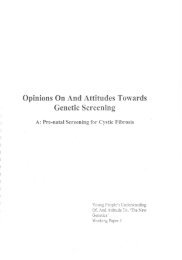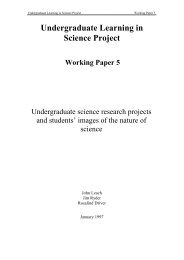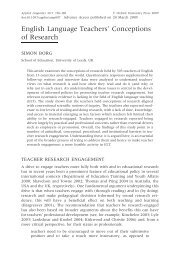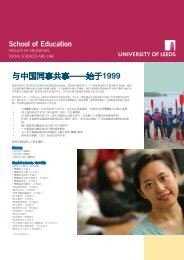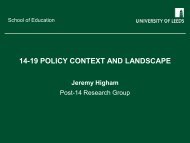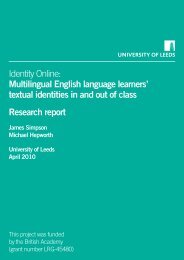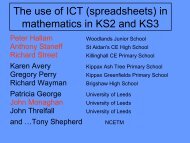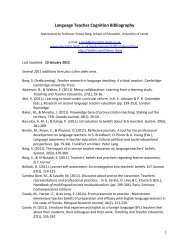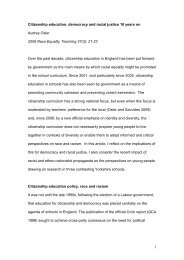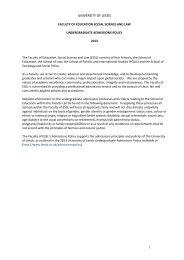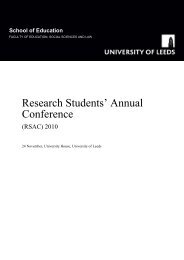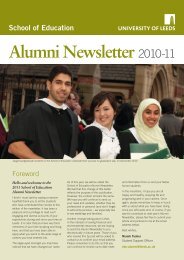The Research Project Study: Design and Methodology - School of ...
The Research Project Study: Design and Methodology - School of ...
The Research Project Study: Design and Methodology - School of ...
Create successful ePaper yourself
Turn your PDF publications into a flip-book with our unique Google optimized e-Paper software.
Undergraduate Learning in Science <strong>Project</strong> Working Paper 23.2 Sources <strong>of</strong> data used to address each <strong>of</strong> the research questions<strong>The</strong> first research question relates to the learning aims identified for projects.A number <strong>of</strong> questions were written into interview schedules in order tocharacterise the various learning aims identified for undergraduate projectwork by supervisors <strong>and</strong> students. Also, written information about the aims<strong>of</strong> project work was collected from departments <strong>and</strong> lecturers reported theirdepartments’ policies as well as their personal views at workshops.<strong>The</strong> second research question <strong>of</strong> the study involved characterising the nature<strong>of</strong>, <strong>and</strong> interactions between, the following aspects <strong>of</strong> undergraduate researchprojects:• the learning experienced by students;• the teaching/supervision approaches used by departmental staff;• the departmental administration <strong>of</strong> research projects; <strong>and</strong>• the departmental approach to the assessment <strong>of</strong> research projects.Information from interviews, workshops <strong>and</strong> departmental policies was usedto make this characterisation.<strong>The</strong> final research question involves evaluating projects as teaching <strong>and</strong>learning experiences for students. <strong>Research</strong> projects were evaluated asteaching <strong>and</strong> learning activities on undergraduate courses by ULISP membersin terms <strong>of</strong> the learning aims identified above, <strong>and</strong> the perspective onteaching <strong>and</strong> learning described in working paper 1. To this extent, all datasources <strong>and</strong> literature on science education were drawn upon in making theseevaluations.3.3 <strong>The</strong> design <strong>of</strong> the data collection instrumentsData collection instruments were used in this study to address the first tworesearch questions. <strong>The</strong> evaluation identified for the final research questioncan only be started once the first two research questions have been addressed,<strong>and</strong> no specific data were collected in the context <strong>of</strong> this question.3.3.1 Interview schedules for use with project studentsSome aspects <strong>of</strong> the research questions were deemed more appropriate toaddress with students at the beginning, the middle, or the end <strong>of</strong> theirresearch projects. Three interview schedules were therefore prepared, withdifferences in focus, <strong>and</strong> administered at different times in the projects.It was anticipated that students’ views about a number <strong>of</strong> aspects <strong>of</strong> researchproject work might change as their projects progressed, <strong>and</strong> questions onthese issues were therefore included in the first <strong>and</strong> third interview, or allthree interviews. For example, students were asked about their views <strong>of</strong>ideal project supervision in each interview, as the role <strong>of</strong> the supervisormight be different at different points in the project. In other cases, it was feltthat there were good reasons to assume that students’ views might remain7



